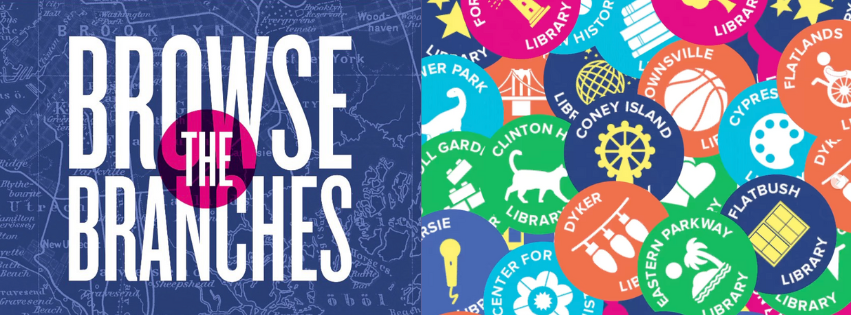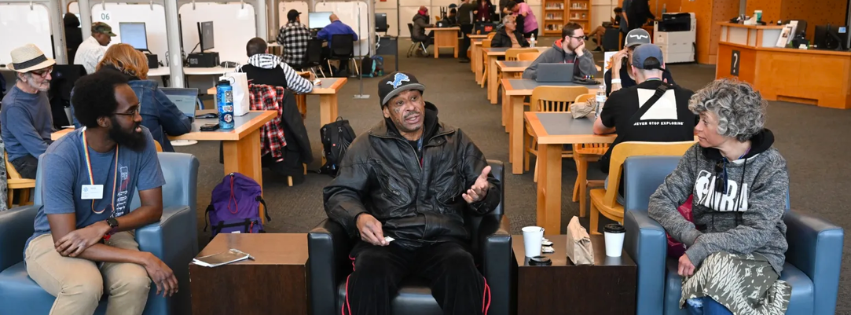Member News Roundup | February 14, 2024
Feb 14, 2024

Kansas City and San Francisco Team Up to Tackle Censorship
Kansas City Public Library, San Francisco Public Library
In the lead-up to last Sunday's big game, the Kansas City Public Library and San Francisco Public Library engaged in a friendly wager — all for the good cause of tackling censorship. A library representative in the city whose team lost the Super Bowl will sport the winning city’s gear and read a banned book in a recording that will be shared on social media. Looks like we'll be hearing from SFPL!
“In San Francisco, only our passionate commitment to intellectual freedom and combating censorship surpasses our love for the 49ers!” SFPL City Librarian Michael Lambert said before the big game. “San Francisco Public Library’s mission is to connect our diverse communities, to learning, conversations, and ideas, while serving as an affirming space for all. This collaboration with Kansas City Public Library allows us to celebrate our collective dedication to ensuring that every member of our community can read freely.”
Attempted book bans continue to rise in the United States; in 2022, the American Library Association recorded 1,269 attempts, the highest number in more than 20 years. Public libraries accounted for 48 percent of challenges. In addition to book bans, libraries also face challenges to displays, exhibitions, programming, and more. Even as these attempts are rising in frequency, the majority of the public oppose book bans: Unite Against Book Bans shares that 71 percent of voters are against removing books from public libraries.

Browsing the Branches in Brooklyn
Brooklyn Public Library
The Brooklyn Public Library announced a new “Browse the Branches” challenge aimed at encouraging library-goers to visit each of its 62 branches.
At locations across Brooklyn, visitors can pick up a “passport” which will serve as a marker indicating which branches they’ve visited. At each BPL location, participants in the challenge will receive a special sticker indicating where they’ve browsed.
This challenge comes after budget cuts forced libraries across New York City to cease their Sunday services back in November, reducing city funding for libraries by $23.6 million. "It would be tremendously meaningful for our library staff to see more people coming through the branches to visit the neighborhoods and check out what they’re doing and show how they appreciate libraries," said Nick Higgins, Chief Librarian of the Brooklyn Public Library.
Read the full story and watch the video from Fox5 NY.

Spotlight on Colorado Librarians: Frontline Crisis Workers
Denver Public Library, Douglas County Libraries, Jefferson County Public Library
A recent piece by The Denver Post profiled librarians from various Colorado libraries about how they are "on the front lines of crisis intervention, tending to their communities’ most vulnerable populations while trying to keep their buildings safe and welcoming to all."
The Denver Post interviewed longtime and up-and-coming Colorado librarians — among them a few from ULC members Denver Public Library, Douglas County Libraries and Jefferson County Public Library — to learn how librarians are trained to manage a workload that goes far beyond bookkeeping. These librarians said they want to shed the stereotype of pedantic conversation-shushers and highlight the realities of librarianship at a moment when their buildings are more than ever a haven for people who slipped through their communities’ cracks.
“I just wish people really understood that the library is for absolutely everyone,” said Clarice Ambler, community resource coordinator at the Jefferson County Public Library. “Homelessness exists and we at the library are not going to turn someone away because they look homeless. We are going to always welcome people into our space even though sometimes it might not look the prettiest. That’s not what’s most important to us. That people have equitable access to information and resources is most important.”
